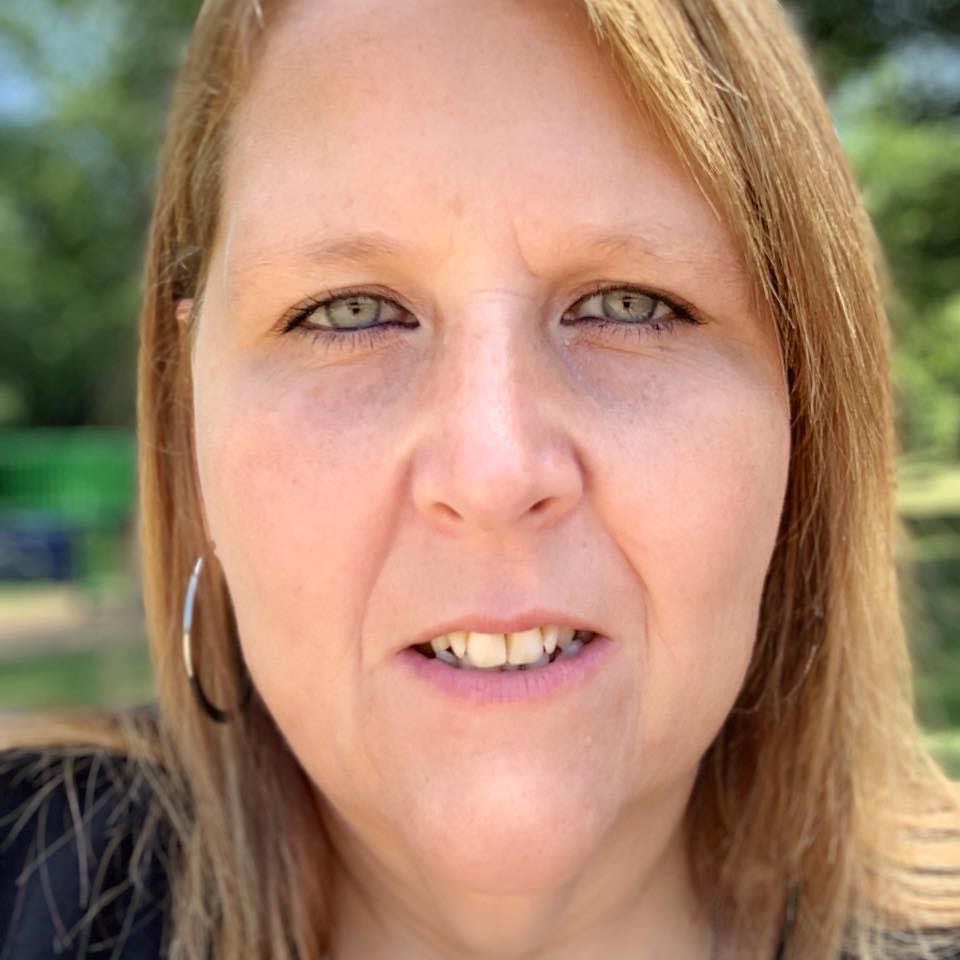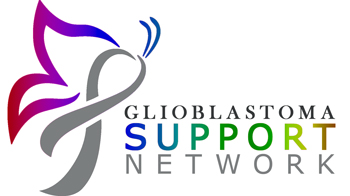
By: Jaime Dyke
When I married Eric, in 2008, I knew we were supposed to be together, till death do us part. Through the years, we had many ups and downs –from health issues, to infertility, to job loss, and eventually, the down that would steal our future from us: Glioblastoma.
That unseasonably warm day in November 2016 when I got a call from Eric’s supervisor, I suspected Eric had fallen off the toilet while in Brown mode (his work family will get it).
That was far from the truth. I wasn’t expecting the news the doctor in the emergency department delivered. He had collapsed on the floor due to a 1.7-centimeter mass in his brain. The doctors wasted no time getting Eric transferred to a larger hospital with a neurosurgeon on hand to assess this mass and make a plan. Five days later, Eric would have the first of two brain surgeries. Two months after surgery, we were told it was Anaplastic Astrocytoma, a form of brain cancer. Eric endured months of treatment, with several additional health scares along the way. Finally, in July 2017, he got the one wish he had wanted since November: Eric went back to work. He worked through headaches and weakness, but he was right where he wanted to be. In September of that year, Eric woke up one day, and his speech was slurred. He went to work anyway. He called me halfway through that morning and asked me to take him to the doctor. Long story short, we ended up at our primary care doctor’s office. She assessed Eric and immediately sent us to the emergency department. The same doctor that had found Eric’s first tumor discovered another one. Several weeks later, Eric had his second brain surgery at Wilmont Cancer Center in Rochester. This tumor was advanced. This tumor was Glioblastoma. This tumor was a death sentence. There is no cure for this type of brain cancer, and it is highly aggressive. We knew Eric was going to die; we just didn’t know it would be four short months later. On January 25, 2018, Eric Scott Dyke took his last breath, one month and one day from his 40th birthday.
You don’t realize when you’re in the middle of fighting for the love of your life’s life that someday much sooner than you planned, you will have to pick out a coffin for him, and you will have to put his name on a headstone, with a date of death for him and a date of birth for you. You don’t realize that living without him will be literally set in stone. You will sit and cry for hours when a check comes in the mail from life insurance, while the only thought going through your head is that my love was worth more than all the money in the world. No one mentions that because you didn’t have children you now have to decide who will be your life insurance beneficiary and who will be your emergency contact at work and the doctor’s office? Who will take you to have surgery if you need it and then take care of you after? Who helps you make financial decisions, after years of having a partner to make those with? Who do you go Christmas shopping with? Who do you talk to about your day? Whose shoulder do you cry on?
No one prepares you for the phone calls or the mail you get, looking for your dead husband. No one tells you that your bank will call several months after your spouse dies and ask you to remove his name from your joint bank account, a bank account that was originally his. No one tells you that you will eventually have to shut off his cell phone (I gave the number to one of his nephews). No one tells you that some days you will struggle to get out of bed, and on those days, you will probably be late for work (not intentionally). No one tells you how much sadness you have to battle sitting at family and friend functions that your spouse should be at. No one tells you how difficult showing up to those functions alone truly is, even 4.5 years later it’s a struggle.
I had spent so long as a caregiver to Eric, I didn’t know what to do now that he was gone. I knew I would complete college, and I knew I would work hard to get into the career I wanted, at the place I wanted (I accomplished these things), but I didn’t know who Jaime was anymore. I spent months looking for the answer, months pretending that I wasn’t lost inside, months being “fine.” People would see me and say things like “I don’t know how you do it,” or “you’re so strong,” or “Eric would want you to be happy.” I do it because I don’t have a choice. I am not strong; I am dead inside. I know what Eric would have wanted… “Jaime be good to yourself.” I know they were trying to be supportive, but it wasn’t helping. My career really changed everything for me. It has helped me discover more about myself as a person and more about people. My job, rescued Jaime.
Don’t get that misconstrued, that magically Jaime is “cured” from her grief, because that couldn’t be farther from the truth. Jaime’s grief lives every day, and Jaime’s grief rears its ugly head on the drop of a dime. Unless you have experienced a loss like this, you have no idea. I lost my mother in 2003 and thought nothing could be worse … then I lost my husband, and it was far more unimaginable. That front I spoke about earlier of being “fine” was getting harder and harder to maintain.
As the months went on, I started to struggle with all the things that Eric was missing: the births of many great nieces and great nephews, his nephew pitching a no-hitter in his last high school game, that same nephew graduating from high school, my college graduation, the marriage of our oldest nephew … so many things that would have made Eric so proud. I started to realize that everyone’s lives were going on without Eric. I started to become bitter. How could they forget about him? Did he not mean anything to them? And then I received a text from my oldest nephew explaining that his young son, who was only four years old when Eric died, was struggling with Eric not being here. He missed his Cow (Eric’s nickname). Eric’s impact on this small child was significant for the short amount of time they had together. I knew at that moment, I needed to hike up my big girl pants and keep pushing forward. That’s how I choose to live: pushing forward.
I am going to leave you with some advice. When you meet a widow or a widower, be kind to them. Understand that the world they once lived in no longer exists. They have to navigate a completely different life than the one they had planned. Never tell them to get over it or to move on, because you just don’t get it. And I truly hope you never do.


